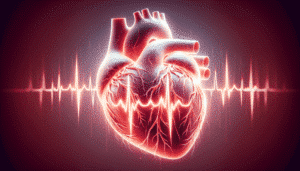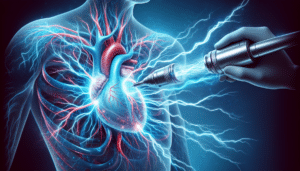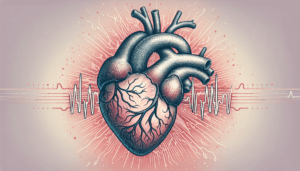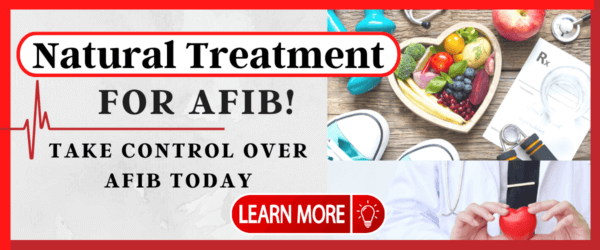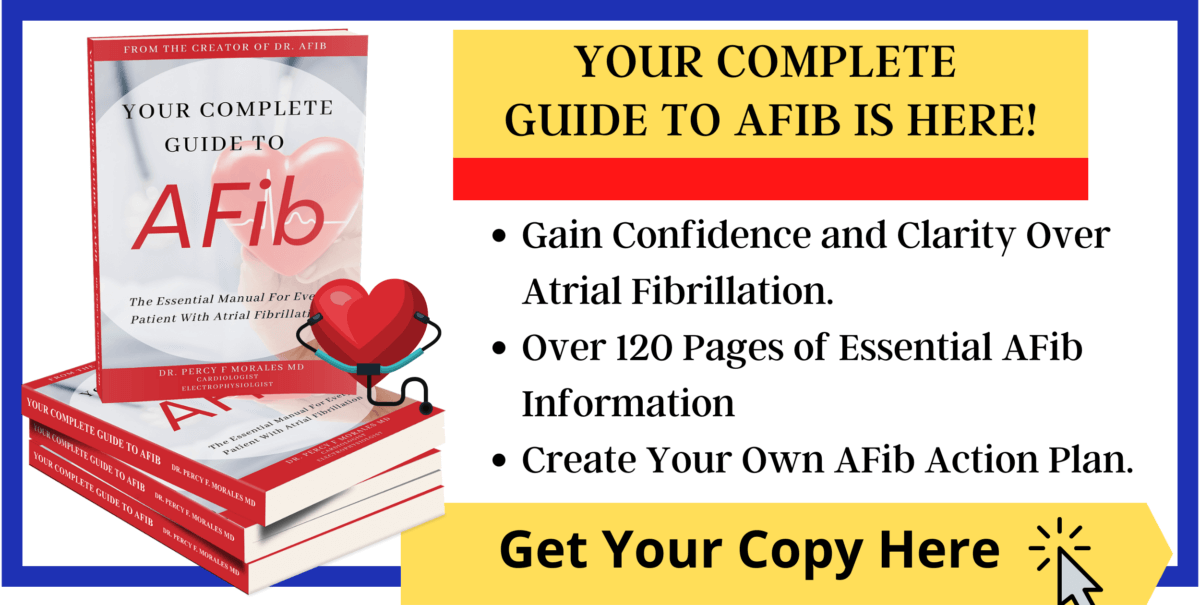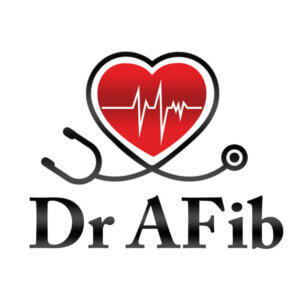Read more about sleep apnea and AFib in this article. Atrial fibrillation (also known as AFib) is the most common heart arrhythmia worldwide. The prevalence of AFib is increasing every year — at the current rate, the CDC estimates that over 12 million Americans will be diagnosed with AFib by the year 2030.
While AFib has been proven to be associated with medical conditions like strokes, there has been an increase in research demonstrating the connection between AFib and obstructive sleep apnea (OSA).
In this article, I will share some current research about AFib and OSA to better explain the connection between both conditions.
What is Obstructive Sleep Apnea?
Obstructive sleep apnea is a serious sleep-related medical condition. Sleep apnea causes a person to stop breathing for periods of time during their sleep. Caused by a partial or full blockage of the upper airway during sleep, apnea episodes can occur multiple times throughout the night and can last up to 30 seconds in duration. The longer the period of apnea lasts, the longer the brain, heart, and body are subjected to low levels of oxygen.
It is estimated that over 22 million Americans suffer from sleep apnea — with around 80% of all moderate to severe cases going undiagnosed. Sleep apnea is usually diagnosed by monitoring a patient during a sleep study, which can be performed either in a sleep lab, or with an at-home sleep study.
Find out more about at home sleep studies offered by Singular Sleep here.
The common risk factors for developing sleep apnea include:
● Having a narrow airway (from genetics or having enlarged tonsils)
● Smoking
● Having an elevated BMI
● Family history of OSA
● Being male (men are 2-3 times more likely to have OSA than women)
● Advanced age
● Consuming alcohol and/or sleep medications before bed
● Having other underlying chronic medical conditions such as high blood pressure or diabetes.
It is also important to understand the common symptoms of obstructive sleep apnea, which can include:
● Loud Snoring
● Episodes where you stop breathing during sleep (usually reported by a sleeping partner)
● Gasping for air during sleep
● Morning Headaches
● Excessive daytime sleepiness
Over time, untreated sleep apnea can lead to the onset of health diseases such as hypertension, diabetes, and AFib. In addition, it has also been shown that sleep apnea can directly trigger an arrhythmia to occur during sleep. The heart experiences mechanical stresses and chemical changes every time a person with sleep apnea experiences a period with poor oxygenation. These pathological stresses are believed to contribute to the development of AFib.
Sleep Apnea and AFib
Recent research has found a connection between sleep apnea and AFib. In a 2020 study of 579 patients with AFib, it was found that 479 (82.7%) of the patients had a mild form of sleep apnea. Additionally, it was found that the patients with more profound symptoms of AFib were more likely to have moderate to severe symptoms of OSA.
The study also found that patients who had OSA and AFib were more likely to experience a recurrence in their arrhythmia, even after effective treatment like medications, cardioversion, and catheter ablation. It is possible that effective treatment of sleep apnea can lead to better control over heart rhythm and heart disease and improve the success rate of common treatments for AFib.
The gold standard treatment option for sleep apnea is the CPAP machine. When properly used, a CPAP machine is a positive pressure machine that keeps the upper airway open and prevents periods of apnea throughout the night.
It is believed that successful treatment of both AFib and OSA will improve symptoms in both conditions. Less physiological stress on the cardiac system from well-managed sleep apnea has been proven to aid in the success of AFib treatments.
Watch my detailed interview on sleep apnea and atrial fibrillation.
Frequently Asked Questions About Sleep Apnea and AFib:
Does AFib Cause Sleep Apnea or Vice Versa?
Recent research has proven that there is a connection between AFib and sleep apnea. It is not currently known if either condition is caused by the other, but symptoms of both diseases tend to be more severe if a person is diagnosed with both conditions.
What Triggers AFib During Sleep?
Many people describe that their atrial fibrillation is worse at night, often waking them up from sleep. Many factors can trigger atrial fibrillation during sleep; however, one of the more likely reasons is low oxygen levels due to sleep apnea.
I highly recommend that any patient who is diagnosed with atrial fibrillation should undergo screening for sleep apnea.
Does Treating Sleep Apnea Also Get Rid of AFib?
Effective treatment of both sleep apnea and AFib is the best way to manage symptoms of both conditions. While treating sleep apnea will not completely get rid of your AFib, having reduced symptoms of OSA has been linked to better success rates in treatments for AFib.
Can Sleep Apnea Cause Atrial Fibrillation?
Research has shown a connection between sleep apnea and AFib. It is not currently known if sleep apnea causes AFib, but prolonged periods of low oxygenation due to sleep apnea puts the cardiovascular system under stress, resulting in the development or worsening of heart arrhythmias.
How Does a CPAP Machine Help AFib?
The CPAP machine is primarily used to treat sleep apnea. It is used to keep the upper airway open throughout the night to prevent sleep apnea and snoring. The CPAP machine is not used to treat AFib, but successful management of OSA has been proven to aid in the successful treatment of AFib.
How Many People With AFib Have Sleep Apnea?
The prevalence of sleep apnea in patients with AFib is incredibly high. It is estimated that 50-80% of all patients with AFib also have sleep apnea (the rates for the normal population are 30-60%). It is highly recommended that people with AFib get tested for sleep apnea.
Is There a Natural Way to Treat Sleep Apnea Without a CPAP?
There is no natural supplement or pill that can reverse sleep apnea. However, a few lifestyle modifications can improve sleep apnea symptoms, such as decreasing or eliminating alcohol and tobacco use. The lifestyle modification most associated with improvement in sleep apnea is weight loss, as reducing extra weight on the upper airway can reduce obstructions and improve airflow throughout the night.
How To Reverse Atrial Fibrillation Naturally
If you are interested in natural treatment options for atrial fibrillation and are highly motivated in improving your symptoms naturally, to reduce your need for medications or even procedures, then take a look at my one-of-a-kind, online educational program, Take Control Over AFib.
Lifestyle modifications and reducing inflammation are essential components of the long-term management of atrial fibrillation. Addressing the source cause of atrial fibrillation can lead to a significant benefit for most AFib patients. Targeted lifestyle modifications can reduce your symptoms, reduce your reliance on medications or procedures, and even improve the long-term success rate of a catheter ablation procedure for AFib. However, most patients are not given instructions or tips on how to accomplish these essential lifestyle modifications in an AFib targeted style.
This is exactly why I created the Take Control Over AFib Program, to give people a step-by-step plan to improve and potentially reverse atrial fibrillation naturally.
Thinking about lifestyle modifications is easy, but putting in place a system to keep you committed to achieve real results takes time and dedication, and with my step-by-step plan, we can achieve powerful and long-lasting results together.
Key Takeaways:
AFib and sleep apnea are connected medication conditions. Proper treatment of both diseases can result in reduced symptoms and easier management for each condition.
If you have been diagnosed with AFib, I highly recommend that you get tested for sleep apnea as well. Successful treatment of both conditions can lead to reduced overall symptoms of AFib, improved quality of life, and better general health.
The Best Atrial Fibrillation Book
Your Complete Guide To AFib: The Essential Manual For Every Patient With Atrial Fibrillation
$15.95 (as of May 29, 2025 06:52 GMT -06:00 - More infoProduct prices and availability are accurate as of the date/time indicated and are subject to change. Any price and availability information displayed on [relevant Amazon Site(s), as applicable] at the time of purchase will apply to the purchase of this product.) The A to Z guide on everything you need to know about atrial fibrillation. Written by AFib expert Dr. Percy Morales MD. Over 120 pages of essential information on medications, procedures, and lifestyles modifications for AFib. Easy to read for every patient.
Shop AFib Products on Amazon
KardiaMobile 6-Lead Personal EKG Monitor – Six Views of The Heart – Detects AFib and Irregular Arrhythmias – Instant Results in 30 Seconds – Works with Most Smartphones - FSA/HSA Eligible
13% Off
KardiaMobile 1-Lead Personal EKG Monitor – Record EKGs at Home – Detects AFib and Irregular Arrhythmias – Instant Results in 30 Seconds – Easy to Use – Works with Most Smartphones - FSA/HSA Eligible
$79.00 (as of May 29, 2025 05:52 GMT -06:00 - More infoProduct prices and availability are accurate as of the date/time indicated and are subject to change. Any price and availability information displayed on [relevant Amazon Site(s), as applicable] at the time of purchase will apply to the purchase of this product.)
Apple Watch Series 9 [GPS 41mm] Smartwatch with Storm Blue Aluminum Case with Silver Sport Band M/L. Fitness Tracker, Blood Oxygen & ECG Apps, Always-On Retina Display
(as of May 29, 2025 06:52 GMT -06:00 - More infoProduct prices and availability are accurate as of the date/time indicated and are subject to change. Any price and availability information displayed on [relevant Amazon Site(s), as applicable] at the time of purchase will apply to the purchase of this product.)
Fitbit Sense 2 Advanced Health and Fitness Smartwatch with Tools to Manage Stress and Sleep, ECG App, SpO2, 24/7 Heart Rate and GPS, Shadow Grey/Graphite, One Size (S & L Bands Included)

OMRON 2-in-1 Upper Arm Blood Pressure Monitor & 1-Lead EKG Monitor - Clinically Validated Blood Pressure Arm Cuff & Machine - Use OMRON Connect App
18% Off
Samsung Galaxy Watch 6 44mm Bluetooth Smartwatch, Fitness Tracker, Personalized HR Zones, Advanced Sleep Coaching, Heart Monitor, BIA Sensor, Health Wellness Insights, Big Screen, US Version, Graphite
12% Off
Natural Rhythm Triple Calm Magnesium 150 mg - 120 Capsules – Magnesium Complex Compound Supplement with Magnesium Glycinate, Malate, and Taurate. Calming Blend for Promoting Rest and Relaxation.
$20.77 ($0.17 / Count) (as of May 29, 2025 05:52 GMT -06:00 - More infoProduct prices and availability are accurate as of the date/time indicated and are subject to change. Any price and availability information displayed on [relevant Amazon Site(s), as applicable] at the time of purchase will apply to the purchase of this product.)
Pure Encapsulations Magnesium (Glycinate) - Supplement to Support Stress Relief, Sleep, Heart Health, Nerves, Muscles, and Metabolism* - with Magnesium Glycinate - 180 Capsules
$44.60 ($0.25 / Count) (as of May 29, 2025 06:52 GMT -06:00 - More infoProduct prices and availability are accurate as of the date/time indicated and are subject to change. Any price and availability information displayed on [relevant Amazon Site(s), as applicable] at the time of purchase will apply to the purchase of this product.)
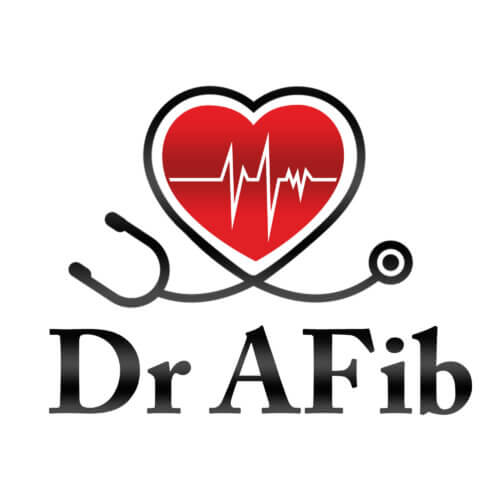
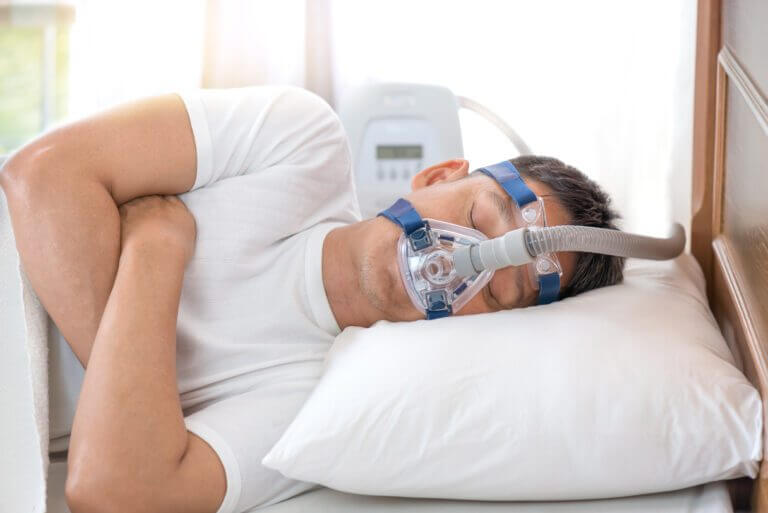













![Apple Watch Series 9 [GPS 41mm] Smartwatch with Storm Blue Aluminum Case with Silver Sport Band M/L. Fitness Tracker, Blood Oxygen & ECG Apps, Always-On Retina Display #1](https://m.media-amazon.com/images/I/311xwtp4mFL._SL100_.jpg)
![Apple Watch Series 9 [GPS 41mm] Smartwatch with Storm Blue Aluminum Case with Silver Sport Band M/L. Fitness Tracker, Blood Oxygen & ECG Apps, Always-On Retina Display #2](https://m.media-amazon.com/images/I/41j+8AaUGsL._SL100_.jpg)
![Apple Watch Series 9 [GPS 41mm] Smartwatch with Storm Blue Aluminum Case with Silver Sport Band M/L. Fitness Tracker, Blood Oxygen & ECG Apps, Always-On Retina Display #3](https://m.media-amazon.com/images/I/41jIyxZitnL._SL100_.jpg)
![Apple Watch Series 9 [GPS 41mm] Smartwatch with Storm Blue Aluminum Case with Silver Sport Band M/L. Fitness Tracker, Blood Oxygen & ECG Apps, Always-On Retina Display #4](https://m.media-amazon.com/images/I/41IpNJERjCL._SL100_.jpg)
![Apple Watch Series 9 [GPS 41mm] Smartwatch with Storm Blue Aluminum Case with Silver Sport Band M/L. Fitness Tracker, Blood Oxygen & ECG Apps, Always-On Retina Display #5](https://m.media-amazon.com/images/I/31o17yhfYpL._SL100_.jpg)






























